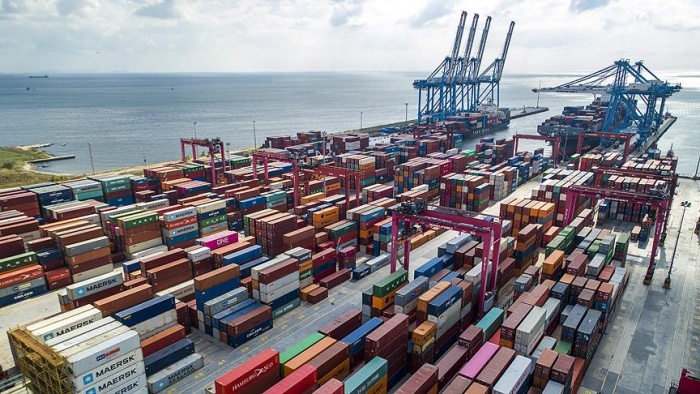Turkish authorities arrested 91 individuals in a large-scale bribery operation targeting customs employees and brokers in southern Mersin province, the Velev news website reported on Monday.
Among those detained were 24 state employees, including the Mersin Free Zone customs director and deputy director, as well as 67 customs brokers and brokerage staff.
The arrests followed a 10-month investigation conducted by the Anti-Smuggling and Organized Crime Division of the local police. The probe uncovered a systematic bribery network where customs brokers allegedly paid fixed-rate bribes to officials for each transaction. Some fees were reportedly charged for legitimate procedures, while larger bribes in foreign currency were collected for illegal activities.
Authorities seized approximately 1.5 million Turkish lira in cash in addition to foreign currency, 42 grams of gold bullion, various items of gold jewelry, luxury watches, unlicensed firearms and drugs during the operation.
Of the 122 suspects detained during the investigation, 112 were referred to court and 91 were arrested, according to local media.
The arrests in Mersin illustrate what analysts see as the entrenchment of corruption in Turkey, which took a decisive turn in 2013 when a major graft probe targeting then-Prime Minister and current President Recep Tayyip Erdoğan and his inner circle was shut down.
This revelation of the probe was followed by a sweeping purge of the police and judiciary involved in the investigation and marked a turning point in cementing systemic corruption by dismantling mechanisms that could hold powerful figures accountable.
Analysts argue that this crackdown has undermined efforts to combat high-level graft, leaving lower-ranking officials under scrutiny while protecting those at the top.
According to observers, anti-corruption efforts are often limited to cases where lower-ranking bureaucrats fail to pass on illicit gains to their superiors, leaving the root causes of corruption unaddressed and further eroding public trust in state institutions.


